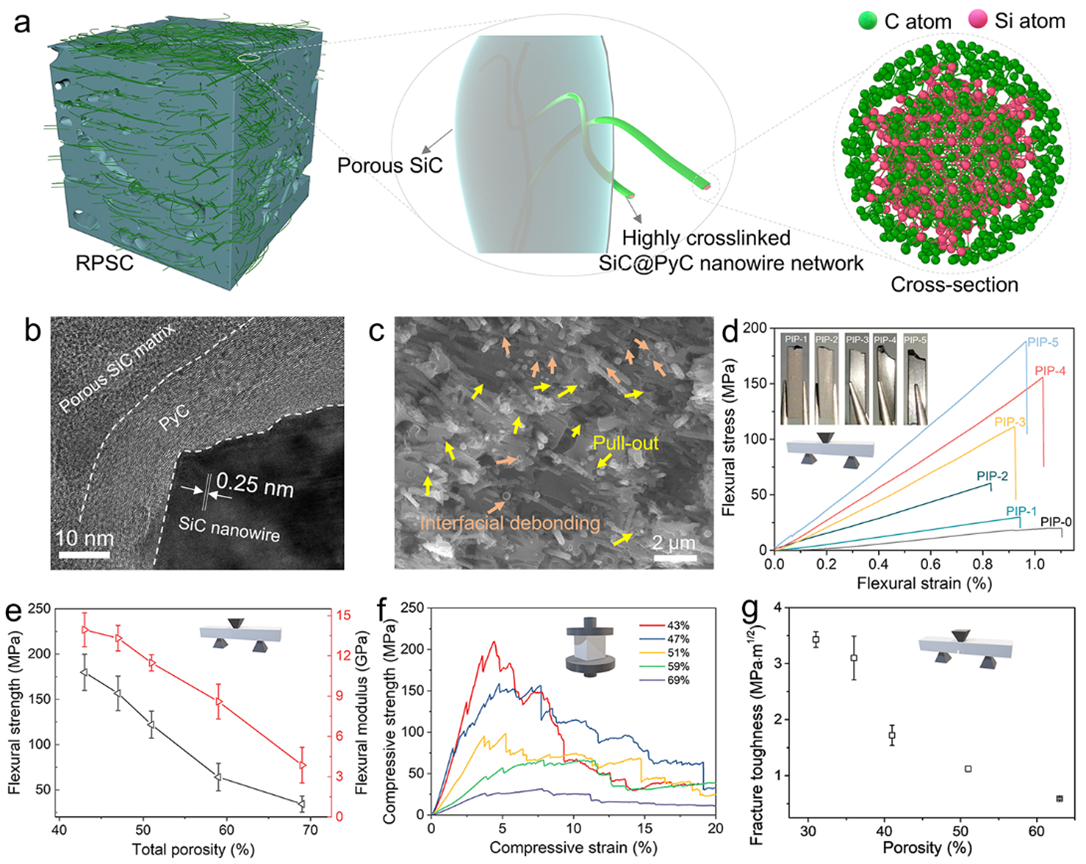Porous silicon carbide (SiC) ceramics exhibit unique advantages in high-temperature insulation, corrosive gas filtration, and lightweight structural applications due to their low density, exceptional thermal stability, corrosion/oxidation resistance, and so on. However, their inherent brittleness—combined with the tendency of pores to act as crack initiation sites—often results in low strength, high fragility, and poor reliability, severely limiting their practical use.

To address these challenges, Prof. Hongjie Wang’s research team developed a novel porous SiC ceramic with remarkable strength and toughness by employing single-crystal SiC nanowire aerogel as a matrix. Through the construction of a highly cross-linked layered SiC@pyrolytic carbon (PyC) core-shell nanowire network and precursor infiltration pyrolysis (PIP), the team achieved a material rich in interfaces between nanowires/PyC and PyC/porous SiC matrix. The resulting ceramic demonstrates outstanding mechanical properties at 43% porosity: a flexural strength of 187 MPa, compressive strength of 215 MPa, fracture toughness of 3.4 MPa·m1/2, and exceptional energy absorption capacity (19.3 MJ·m−3).
These findings were published in ACS Nano under the title “Strong and Tough Porous Silicon Carbide Ceramics”. The paper’s first author is De Lu, a young faculty member at School of Materials Science and Engineering,Xi’an Jiaotong University, with co-corresponding authors Lei Zhuang and Professor Hongjie Wang. The State Key Laboratory for Mechanical Behavior of Materials at Xi’an Jiaotong University is the sole affiliation.
The research was supported by the National Natural Science Foundation of China.
Publication Link: https://pubs.acs.org/doi/abs/10.1021/acsnano.5c00570
In recent years, Prof. Wang’s team has made serial advancements in silicon-based ceramic nanowire aerogels and their mechanical performance modulation, including:
Damage-tolerant porous SiC ceramics with high specific strength (Nano Lett. 2024, 24, 10313-10321);
Elastic Si3N4@PyC nanowire aerogels stable at 1400 °C (ACS Nano 2024, 18, 15950-15957);
Lightweight yet high-strength SiC nanowire frameworks (ACS Nano 2023, 17, 1166-1173);
Strong and flexible ceramic aerogels (Nat. Commun. 14.1 (2023): 7057.).


